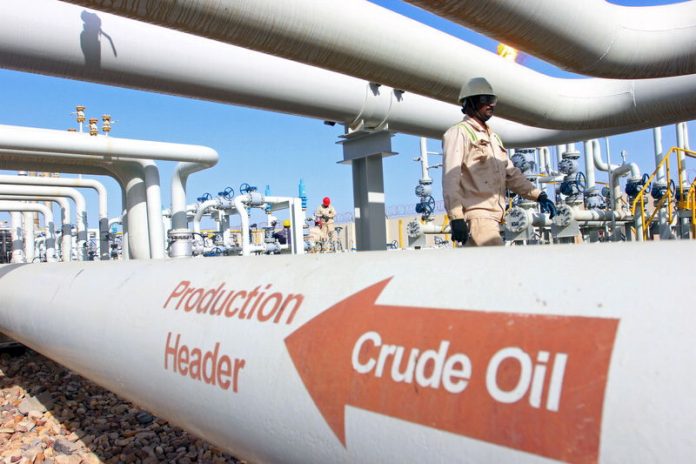Oil prices stabilised on Tuesday after declining in the previous session as markets weighed tensions in the Middle East amid concerns over demand and rising OPEC supply, RTE reports.
Brent crude futures were up 17 cents, or 0.2 per cent, to $76.29 a barrel this morning, while US West Texas Intermediate crude futures were up 0.1 per cent, or 5 cents, to $70.82 a barrel.
Yesterday, quotations fell by more than 3% and 4%, respectively, amid sharp price cuts by leading exporter Saudi Arabia and rising OPEC production. CMC Markets analyst Leon Li said:
“Saudi Arabia’s sharp price cuts and OPEC’s increased production have offset supply concerns caused by escalating geopolitical tensions in the Middle East.”
As for the war in Gaza, the Israeli military has said its fight with Hamas will last until 2024, worrying markets as the conflict could escalate into a regional crisis that could disrupt oil supplies to the Middle East.
US Secretary of State Antony Blinken arrived in Tel Aviv last night to brief Israeli officials on two days of talks with Arab leaders to end the war.
Keeping prices in check, however, a Reuters survey on Friday showed OPEC oil output rose in December as increased output from Angola, Iraq and Nigeria offset continued cuts by Saudi Arabia and other members of the broader OPEC+ alliance. The increase in supply forced Saudi Arabia to cut February’s official selling price for its main Arab Light crude to Asia to the lowest level in 27 months.
Suvro Sarkar, head of DBS Bank’s energy sector group, said oil prices are likely to range between $75 and $80 a barrel in the near term “unless there is an unforeseen escalation in the Middle East”. He added:
“On the supply side, there are some bullish factors from the closure of Libya’s largest oilfield, which has affected around 0.3 million barrels per day of oil production.”
The dollar paused its rally today, supporting prices as traders confirmed their bets on a large number of rate cuts by the Federal Reserve this year. The weakening dollar is helping oil prices as the commodity becomes cheaper for holders of other currencies.
Federal Reserve chief Michelle Bowman said she now considers US monetary policy “sufficiently restrictive” and expressed her willingness to support a possible cut in interest rates as inflation eases.
Today, the market is awaiting data on US oil inventories from the American Petroleum Institute industry group.
